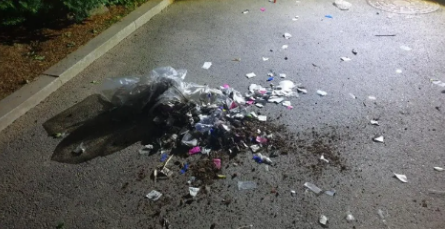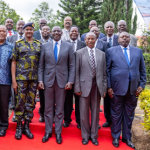South Korea has announced it will resume propaganda broadcasts against North Korea for the first time in six years, in response to Pyongyang’s campaign of sending rubbish-filled balloons across the border. Over Saturday and Sunday, more than 300 North Korean balloons were detected, with around 80 landing in the South carrying scrap paper and plastic sheets.
North Korea has not yet responded to this announcement. However, Pyongyang considers the loudspeaker broadcasts an act of war and has previously threatened to destroy them.
Last month, North Korea appeared to send at least 200 balloons carrying rubbish over the border in retaliation for propaganda leaflets sent from the South. Over the weekend, North Korea resumed this waste campaign by sending balloons carrying sacks of rubbish into South Korea, following the activists’ release of 10 balloons with leaflets critical of the North Korean regime on Friday, according to AFP news agency.
South Korea’s military reported that no more balloons are in the air and no hazardous materials have been found. They have warned the public not to touch the balloons and to be cautious of falling objects, advising that any sightings should be reported to the nearest police or military unit.
In response to the latest batch of balloons, South Korea’s National Security Council decided to restart loudspeaker broadcasts on the border, beginning on Sunday. This marks the first use of loudspeakers since 2018. On Thursday, an activist group in South Korea had flown balloons into North Korea carrying leaflets criticizing Kim Jong Un, dollar bills, and USB sticks with banned K-pop music videos.
In recent years, these broadcasts have included news from both Koreas and abroad, as well as information on democracy and life in South Korea. The South Korean military claims the broadcasts can be heard up to 10km (6.2 miles) across the border during the day and up to 24km (15 miles) at night.
In May, a South Korea-based activist group claimed to have sent 20 balloons carrying anti-Pyongyang leaflets and USB sticks containing Korean pop music and music videos across the border. Despite Seoul’s parliament passing a law in December 2020 that criminalizes the launch of anti-Pyongyang leaflets, critics have expressed concerns about potential violations of freedom of speech and human rights.
North Korea has also retaliated by launching balloons southward that target Seoul’s leaders. In one such incident in 2016, the balloons reportedly carried toilet paper, cigarette butts, and rubbish, which Seoul police described as “hazardous biochemical substances.”



